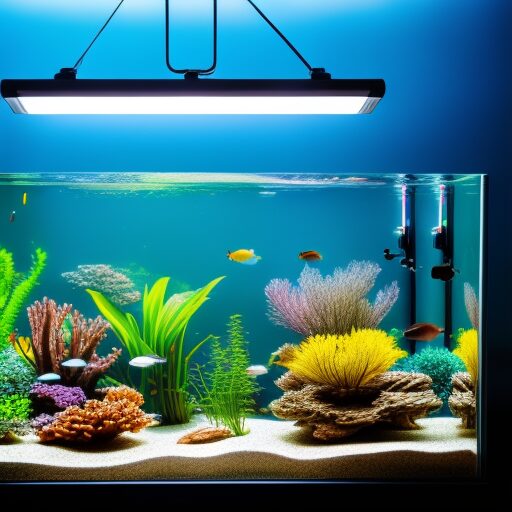Get some fish and tips
Do your fish have trouble deciding whether to sink or swim? If so, the advice below will help to keep your fish in fine fettle.
Poor aquarium management is the cause of most problems with aquarium fish. Fish in tanks have a small volume of water in which to swim when compared with their free-living counterparts. Changes in aquarium water conditions can occur rapidly and can be fatal when they do occur.

Crowded House
Overcrowding, overfeeding or, in Queensland, overheating are common causes of illness in fish.
It is important not to treat your fish like canned sardines. Calculating the number of fish you can place in a tank is tricky but as a guideline, in a 60cm by 30 cm tank, you should place no more than twenty-eight Tetras or, for a goldfish tank, sixteen Goldfish.
The type of fish, their size and any aggression that occurs between fish may mean that you can house fewer fish than this formula would dictate.
If you place a good crop of plants in the aquarium, you will increase the carrying capacity. Plants provide hiding places for victimised fish and help to keep the tank environment in good order. Toys and ‘buildings’ in the tank also help provide hiding holes.
Fish in Hot Water
Maintaining the correct temperature of the tank is most important. High and low temperatures can be deadly but, in Queensland, high temperatures are the main problem.
A thermostatically controlled heater will help to ensure the correct temperature in winter. For goldfish, the tank temperature should about 20 to 22 degrees centigrade and for tropical fish, it should range between 24 and 27 degrees centigrade. The ideal temperature depends more on the type of fish kept. Seek further advice from your aquarium supplier when you purchase your fish.
Sudden changes in the temperature of fish tanks cause problems. This will occur if you introduce a fish into a tank too quickly, without equilibrating the temperatures between the fish and the tank beforehand. It can also occur following power blackouts when the heater stop
| Sudden changes in the temperature of fish tanks cause problems. |
In summer, direct sunlight beaming into the tank through a window is a common evil. This causes the tank to heat up quickly and the fish will suffer. Placing the tank in a shaded location is important.
High temperatures reduce the ability of the water to carry oxygen. This results in respiratory difficulties that the fish often show by crowding around the water inlet or pump or by swimming just under the water surface with their mouths open. Affected fish often have blood streaks on their fins and body surfaces.
High temperatures favour the growth of disease-causing organisms and sickness will often result.
Feeding Aquarium Fish
Feeding fish properly is not easy. It needs a conscious degree of self restraint. Of all domestic pets, aquarium fish are probably the most overfed!
You will find many types of fish foods on the market. The flakes of fish foods that are available are ideal for the general feeding of tropical fish, goldfish and marine fish.
Tropical fish and goldfish also relish mosquito larvae, earthworms, green vegetables such as lettuce and silverbeet, and insects such as houseflies and slaters. Never feed fish insects that you have killed with insecticide.
In a well-managed fish tank, a large quantity of food is constantly available in the plants and residual food particles that are present. These particles are too small for one to see but they will keep fish replete for several days.
The golden rule for fish feeding is to give ‘little and often’. You should feed only the amount that they can consume in five minutes. Dropping the food in one corner of the tank will help to develop a feeding routine with the fish. They will learn to search that corner for food and a light tap on the corner of the tank will soon teach them when ‘tucker time’ has arrived.
Feed your fish no more than once a day. In fact, feeding every second day is sufficient and feeding the fish early in the day is better. They will then have time to eat the food before dark. This stops the food decomposing overnight.
If excess food is given, the remainder sinks to the bottom of the tank where it decomposes into a sludgy soup and causes a build up of dangerous ammonia.
If you have spilt excess food into the tank, siphon it off immediately before it scatters.
Fish are fascinating to watch. Their slow, graceful and fluid movements are pacifying. While they are not very cuddly and do not do well curled up on your pillow at night, they are well worth considering for those wanting small, clean, ‘easy-care’ pets.
